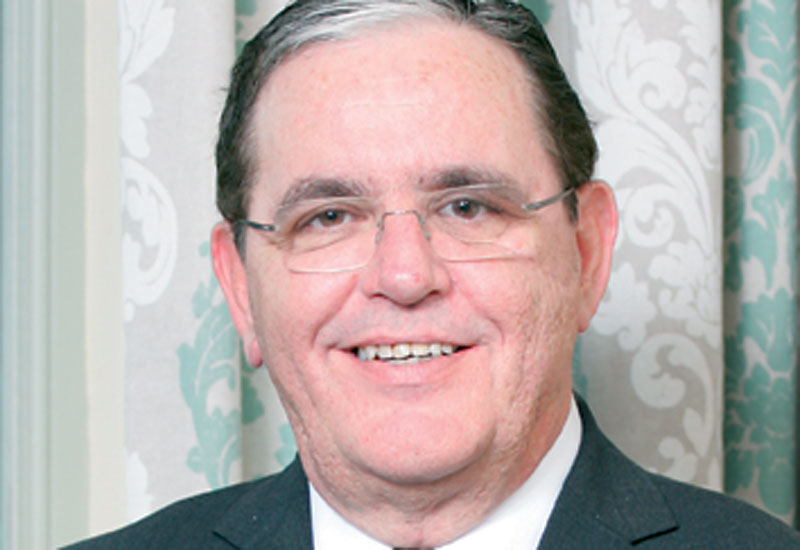Ròya International director asset management Madhu Azad agrees that asset managers should be involved in pricing “more from a global point of view”.
Meanwhile, RMAL Hospitality PJSC, chief operating officer Walter Hall, warns: “The asset manager should not get involved in the day to day pricing of the hotel as micro management in this respect helps neither party. However, they should be very aware of the hotel’s performance in relation to its competitive set and be in a position to discuss the pricing strategy with the management team in relation to the hotel performance and where that hotel should be in comparison to its competitors”.
SUPPORTING OPERATORS
Hall makes an important point, as he draws attention to the all-important relationship between the owner and the operator.
He says “it is helpful if the asset manager is involved in the negotiation of the contract as the management agreement establishes the fundamental terms of the relationship between the parties involved”.
“However this is just a starting point,” continues Hall. “Open communication is essential with a mutual understanding of how success will be defined and measured. Regular meetings with the management team ensure that both parties are aligned. There will be certain conflicts aside from the financial performance of the hotel. The open ended check book other wise known as brand standards is always a debatable point as the asset manager is purely interested in the financial performance of the hotel where the operator is interested in having a showcase for future investors. Through sensible collaborative dialogue these issues can be dealt with sensibly.”
The experts were in general agreement that the asset manager should also support the operator in executing their contractual obligations.
“This needs to be done in a manner which is supportive to the operator and does not seek to interfere with or denigrate the operator’s contractual right to manage,” says Croston. “When the right type of relationship is constructed the operator should view the asset manager as an additional support to the GM in identifying ways and means of enhancing profitability, which the GM then executes against. It is very important that this is provided as advice and recommendations rather than instructions, so that the operator/GM can “buy-in” to the advice and execute accordingly”.
Nijhof adds: “One of their main priorities should be to create a good working and professional relationship with the management companies. Through the creation of this relationship they will have the ability to motivate the management company for better hotel performance and be able to push the envelope”.

Advertisement
SUPER GROWTH OR SUPERFLUOUS?
The asset managers make a good argument for their services and all predict further demand for their business, though growth may be slow.
Croston says that while he has seen some opportunities for asset management in Western Europe, the sector is still “embryonic” in the Middle East.
“The tendency is to use an “owner’s representative” – often an ex-GM employed directly by the owner to fulfill the role of asset manager. Ironically the decision to appoint a third party asset manager is clearly more difficult when earnings have fallen and the desire is to preserve as much cash as possible. This reality is likely to act as an inhibitor to a rapid growth of third party asset management in the region. Once individual owners become aware of the potential for enhanced performance, through dialogue with other owners who have experienced the benefits of third party asset management, the situation is likely to evolve quite quickly,” he explains.
Others are far more assertive on the important role of asset managers.
“Asset managers are not superfluous, rather they should become an integral part of the owner’s plans,” says Azad.
Hillier says that Vision Hospitality Asset Management gained 18 hotels in 2010, taking it to a total of 183 hotels under asset management.
“We strongly believe that the role of asset managers is growing on a month by month basis,” says Hillier. “If you study the relationship between hotel revenue, hotel profit, owners returns and operators fees you will see that an operator is not sufficiently motivated to drive the bottom line performance of an asset. Almost all operators monitor their performance by published RevPAR data. An owner cannot take RevPAR to the bank. Only profit and an experienced and knowledgeable asset manager will significantly add to the bottom line profit”.
And linking back to the operators, Nijhof has the last word.
“From a management company point of view, I only have one thing to say: The asset management companies are here to stay, so embrace them and do not become controversial. Give them access and interpret the management contract with a bit of flexibility.
“At the end of the day both the management company and the asset manager would like to achieve the same objective, which is the highest possible profit levels/ amounts”.









 Search our database of more than 2,700 industry companies
Search our database of more than 2,700 industry companies









